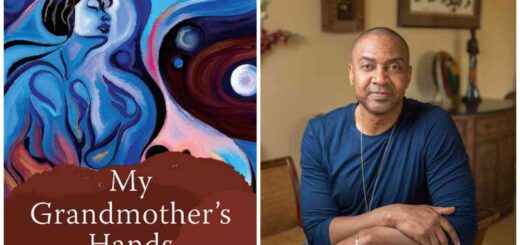Pastors group delves into how we are socialized into racial hierarchies and how we can overcome it
Our Living Into Inclusivity group recently held our third conversation about race and inclusion and the focus was on discussing the signs we see that our community and country has not yet overcome our racialized past and ways that we can overcome that socialization and create a more compassionate, equal and just society.
The group — including seven local pastors plus Karen Rutherford and this writer — have committed to spending a year trying to better understand issues of race and inequality. We are representing ourselves and doing our best to wrestle honestly and transparently with the issues.
There is unanimous agreement between the nine of us who are having this ongoing conversation that we are far from being in a post-racial society, but we know that many others in this country take a different view. Some feel that merely bringing up issues of racial division is a cause of division.
Our general sense was that what we see with our own eyes is clear evidence that racial bias is very much alive, from the police violence that killed George Floyd and Breonna Taylor to the reports of racist behavior at the Virginia Military Institute, and efforts to suppress the votes of minorities in some states.
James Aalgaard, the pastor at Grace Lutheran Church, said some families in his congregation have reported seeing local stores asking Latino teenagers to leave backpacks outside while not making the same request of White teenagers.
At the same time Aalgaard acknowledged the natural human trait at work in which people who look like yourself are trusted more than people who look different. I think this point is worth reflecting on.
Let’s face it, we all have biases. However, we can choose to overcome stereotypes about race if we are willing to pay attention to the fact that some people are treated poorly in our communities.
Karen Rutherford, a former science coordinator in the Wenatchee School District, said she’s observed how people of color, primarily Latinos, have been treated differently in the education. Schools in more affluent neighborhoods look better and have more amenities, she pointed out. Schools with more affluent parents tend to have more active Parent Teacher Associations that raise significant dollars for enhancements.
This does create inequities that send signals to our Latino neighbors, unconsciously I’m sure, that their kids are less valued.
Frances Twiggs, the rector at St. Luke’s Episcopal Church, pointed out the ways in which Christian churches including her own, have assumed that Jesus was White. They’re looking at the language (the notion that darkness equates with evil which can be construed as skin tone) that can inadvertently foster a sense of racialization.
Rev. Laura Shennum, of the Cascade Unitarian Universalist Fellowship, who also is the daughter of a police officer, talked about shows like Cops and others that have predominantly shown police officers as heroic and disproportionately have depicted people of color as criminals.
There is a dehumanization in stereotyping people in this way, she acknowledged. Since they have been considered less than human, it was easy for authorities to use African Americans in medical experiments, as one example. For a deep dive into this issue, she recommends the book Caste: The Origin of Our Discontents, by Isabel Wilkerson.
What I took away from that segment of the conversation was that acknowledging the role of race isn’t about “feeling guilty” but instead about seeing the truth of how racial bias continues to haunt our society.
Here are some of the important aspects we talked about in becoming more aware of the role that race plays in our society. Dave Haven, of Celebration Lutheran Church, talked about growing up near a reservation and visiting a family once. “We were welcomed in and had a great conversation,” Haven said. Taking the time to get to know people who are different is something anyone can do at any time in their lives.
There was general consensus that the best way to confront things like unconscious bias is by building relationships intentionally. Students having teachers that reflect the community was another strategy we discussed.
We came away from the conversation convinced that we can do a much job of getting to know others in our community and keeping an open mind rather than just resorting to labels, which tend to isolate and dehumanize.
If you want to see the broadcast of our conversation and all of the dialogue, search YouTube for “Living Into Inclusivity” and look for Conversation III.

